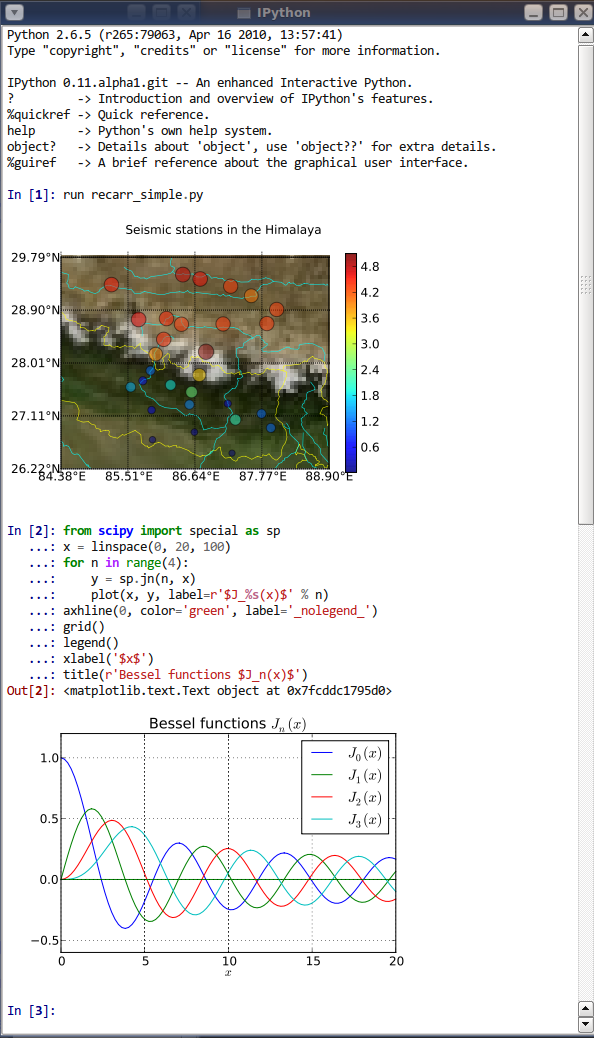| 123456789101112131415161718192021222324252627282930313233343536373839404142434445464748495051525354555657585960616263646566676869707172737475767778798081828384858687888990919293949596979899100101102103104105106107108109110111112113 |
- Metadata-Version: 2.1
- Name: qtconsole
- Version: 4.7.5
- Summary: Jupyter Qt console
- Home-page: http://jupyter.org
- Author: Jupyter Development Team
- Author-email: jupyter@googlegroups.com
- Maintainer: Spyder Development Team
- License: BSD
- Keywords: Interactive,Interpreter,Shell
- Platform: Linux
- Platform: Mac OS X
- Platform: Windows
- Classifier: Intended Audience :: Developers
- Classifier: Intended Audience :: System Administrators
- Classifier: Intended Audience :: Science/Research
- Classifier: License :: OSI Approved :: BSD License
- Classifier: Programming Language :: Python
- Classifier: Programming Language :: Python :: 2.7
- Classifier: Programming Language :: Python :: 3
- Classifier: Programming Language :: Python :: 3.5
- Classifier: Programming Language :: Python :: 3.6
- Classifier: Programming Language :: Python :: 3.7
- Description-Content-Type: text/markdown
- Requires-Dist: traitlets
- Requires-Dist: ipython-genutils
- Requires-Dist: jupyter-core
- Requires-Dist: jupyter-client (>=4.1)
- Requires-Dist: pygments
- Requires-Dist: ipykernel (>=4.1)
- Requires-Dist: qtpy
- Requires-Dist: pyzmq (>=17.1)
- Provides-Extra: doc
- Requires-Dist: Sphinx (>=1.3) ; extra == 'doc'
- Provides-Extra: test
- Requires-Dist: pytest ; extra == 'test'
- Requires-Dist: mock ; (python_version=="2.7") and extra == 'test'
- # Jupyter QtConsole
- [](https://travis-ci.org/jupyter/qtconsole)
- [](https://coveralls.io/github/jupyter/qtconsole?branch=master)
- [](https://qtconsole.readthedocs.io/en/stable/)
- [](https://groups.google.com/forum/#!forum/jupyter)
- A rich Qt-based console for working with Jupyter kernels,
- supporting rich media output, session export, and more.
- The Qtconsole is a very lightweight application that largely feels like a terminal, but
- provides a number of enhancements only possible in a GUI, such as inline
- figures, proper multiline editing with syntax highlighting, graphical calltips,
- and more.
- 
- ## Install Qtconsole
- The Qtconsole requires Python bindings for Qt, such as [PyQt5](http://www.riverbankcomputing.com/software/pyqt/intro),
- [PyQt4](https://www.riverbankcomputing.com/software/pyqt/download),
- or [PySide](http://pyside.github.io/docs/pyside).
- Although [pip](https://pypi.python.org/pypi/pip) and
- [conda](http://conda.pydata.org/docs) may be used to install the Qtconsole, conda
- is simpler to use since it automatically installs PyQt5. Alternatively,
- the Qtconsole installation with pip needs additional steps since pip doesn't install
- the Qt requirement.
- ### Install using conda
- To install:
- conda install qtconsole
- **Note:** If the Qtconsole is installed using conda, it will **automatically**
- install the Qt requirement as well.
- ### Install using pip
- To install:
- pip install qtconsole
- **Note:** Make sure that Qt is installed. Unfortunately, Qt is not
- installed when using pip. The next section gives instructions on doing it.
- ### Installing Qt (if needed)
- You can install PyQt5 with pip using the following command:
- pip install pyqt5
- or with a system package manager on Linux. For Windows, PyQt binary packages may be
- used.
- **Note:** Additional information about using a system package manager may be
- found in the [qtconsole documentation](https://qtconsole.readthedocs.io).
- More installation instructions for PyQt can be found in the [PyQt5 documentation](http://pyqt.sourceforge.net/Docs/PyQt5/installation.html) and [PyQt4 documentation](http://pyqt.sourceforge.net/Docs/PyQt4/installation.html)
- Source packages for Windows/Linux/MacOS can be found here: [PyQt5](https://www.riverbankcomputing.com/software/pyqt/download5) and [PyQt4](https://riverbankcomputing.com/software/pyqt/download).
- ## Usage
- To run the Qtconsole:
- jupyter qtconsole
- ## Resources
- - [Project Jupyter website](https://jupyter.org)
- - Documentation for the Qtconsole
- * [latest version](https://qtconsole.readthedocs.io/en/latest/) [[PDF](https://media.readthedocs.org/pdf/qtconsole/latest/qtconsole.pdf)]
- * [stable version](https://qtconsole.readthedocs.io/en/stable/) [[PDF](https://media.readthedocs.org/pdf/qtconsole/stable/qtconsole.pdf)]
- - [Documentation for Project Jupyter](https://jupyter.readthedocs.io/en/latest/index.html) [[PDF](https://media.readthedocs.org/pdf/jupyter/latest/jupyter.pdf)]
- - [Issues](https://github.com/jupyter/qtconsole/issues)
- - [Technical support - Jupyter Google Group](https://groups.google.com/forum/#!forum/jupyter)
|